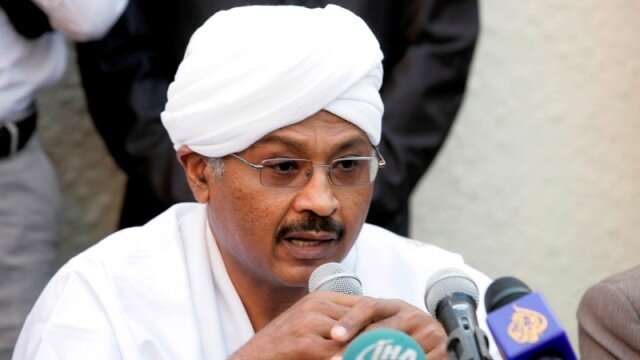(Gadissa Belayneh – The Reporter Ethiopia) - Ethiopia commenced the construction of the GERD
on March 2011 on the Abbay/Blue Nile River. As the dam is being constructed on a transboundary watercourse Ethiopia followed the necessary procedure of making sure that the Dam will not significantly affect downstream countries. Rather, the studies conducted by Ethiopia shows overall regional benefits of the GERD. Yet, to build trust and confidence and enhance cooperation in the Basin, Ethiopia initiated the establishment of a tripartite committee consisting of experts from Ethiopia, Egypt and Sudan, to see if there are any unforeseen effects of the Dam. This process culminated in the establishment of the International Panel of Experts (IPoE) on May 2012 comprising 10 members, two from each Ethiopia, Egypt and Sudan and four international experts from South Africa, France, Germany and Britain.
Unprecedented, Ethiopia, while there is no any legal treaty or customary practice in the Nile to obliged her so, provided all the design and study documents of GERD to the IPoE. One hundred fifty three documents in number. After one year review and field visits to the dam site and meetings and discussions in Ethiopia, Egypt and the Sudan, the IPoE submitted its final report on June 2013. Ethiopia and Sudan immediately and officially announced they welcome the final report. Egypt, then under the presidency of Mohammed Morsi, was busy of war mongering rhetoric against Ethiopia. The IPoE while acclaiming the benefits of the GERD, its design and construction process as up to the international standard, and despite Ethiopia`s previous studies, recommended to conduct two studies by the three countries together based on primary data. The studies were recommended to enhance confidence among the three countries.
Implementing these two studies, hydropower/water resources simulation modeling at the Eastern Nile and transboundary socio-economic and environmental impact assessment was the next step. But the process was delayed due to Egypt`s insistence in tabling unnecessary agenda and politicization of technical issues. It took more than a year to establish the Tripartite National Committee-TNC as a mechanism to follow up and conduct the two studies.
The Tripartite National Committee (TNC)
The TNC, established in August 2014, is mandated to follow up and conduct the two IPoE recommended studies. It has 12 members, four experts from each of the three countries. From September 2014 to November 2017 it held 17 meetings. It has come a long way and achieved a lot in maintain the engagement and cooperation between the three countries.
The TNC so far hired the Consultant to conduct the two studies, a French Consulting firm BRLi. Being flexible and with the objective to move forward, Ethiopia accepted Egypt`s proposal of hiring a sub-consultant, too. Artelia, another French firm is contracted with BRLi as the latter’s sub-consultant. On September 2016, the TNC of the three countries inked a Consultancy Services Agreement with the lead consultant BRLi.
The Consultant submitted its Draft Inception Report to the TNC on March 2017. Unfortunately, though, what was submitted as a Draft Inception Report is not in line with the Consultancy Services Agreement which necessitates its correction. The TNC as a client is mandated to guide the Consultant and respect the Consultancy Services Agreement. The TNC in its 13th meeting met in Cairo in April 2017 and discussed on the Draft Inception Report. The 14th and 15th TNC meetings were also held in May 2017 and September 2017, in Addis Ababa and Upper Atbara of Sudan, respectively.
The TNC was unable to reach an agreement on fundamental issues. Then a ministerial meeting was called. The first held on October 18, 2017 in Addis Abeba, A day after the three ministers visited the GERD site. The second held in Cairo on 11-12 November 2017. However, no agreement was reached despite Ethiopia`s and Sudan`s keenness to move forward. All because of Egypt!
What Egypt wants and why it will never get it?
Egypt wants to hook up one big fish from the discussions on the GERD. And that big fish is Ethiopia and the issue is the 1959 “Agreement”. Egypt calls it a “historic right” but it is a “historic wrong” for Egypt itself. Egypt wants this “historic wrong” be recognized by Ethiopia. IN other words, Egypt is asking ‘Ethiopia to throw away its sovereign and natural right of utilizing the Nile and carry an Egyptian colonial yoke and deprive its people of their basic right of quenching their thirst from their Nile waters.’
Ethiopia, as a sovereign country, has a longstanding and firm position regarding the said “agreement” or the “claimed right.” It was not consulted; neither was part of it nor recognized it. It will never ever do recognize it. From the Ethiopian perspective the 1959 “Agreement” is non-existent. Actually, all colonial treaties or partial agreements are nullified by the Nile River Basin Cooperative Framework Agreement (CFA) thanks to the hard work of all the Nile Basin countries. Egypt itself has nullified the 1959 “Agreement” by signing the Agreement on the Declaration of Principles (DoP) on the GERDP on March 2015.
The DoP, which was signed by the leaders of the three countries, clearly stipulates that the countries have a sovereign right to equitably and reasonably utilize the waters of the Blue/Main Nile without causing significant harm. In the previous meetings, both the TNC and Ministerial, Egypt worked against the DoP and the Consultancy Services Agreement.
What is better for Egypt is to drop its unacceptable and colonial mentality and join the community of civilized nations. The Nile is enough for all the countries. What is needed is the political will and enhancing cooperation in good faith. Politicization of the Nile had never help Egypt. It will never help it in the future as well.
-
Daily Arabic Newspapers Headlines Sunday 7th January, 2017Next >


